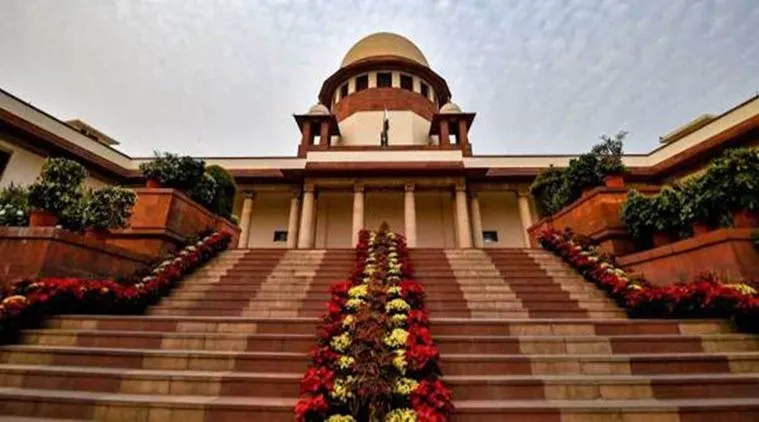
The Supreme Court on Thursday slammed West Bengal Police and asked the Mamata Banerjee government to pay Rs 20 lakh as “compensation” to producers of Bengali film Bhobishyoter Bhoot, which had to be pulled out of cinemas, allegedly on the instructions of “higher authorities”.
“We have no manner of doubt that this was a clear abuse of public power. The police are entrusted with enforcing law. In the present case, the West Bengal police have overreached their statutory powers and have become instruments in a concerted attempt to silence speech, suborn views critical of prevailing cultures and threaten law-abiding citizens into submission,” a bench of Justices D Y Chandrachud and Hemant Gupta said, awarding the compensation.
Writing for the bench, Justice Chandrachud said, “In the present case, we are of the view that there has been an unconstitutional attempt to invade the fundamental rights of the producers, the actors and the audience. Worse still, by making an example out of them, there has been an attempt to silence criticism and critique. Others who embark upon a similar venture would be subject to the chilling effect of ‘similar misadventures’. This cannot be countenanced in a free society. Freedom is not a supplicant to power.”
The producer, Indibily Creative, had approached the SC, stating the film was suddenly pulled out of cinemas on February 16, a day after its release, and some of the exhibitors had attributed this to pressure from “higher authorities”. The producers also said on February 11, they got a call from a Joint Commissioner of Kolkata Police state intelligence unit, and then a letter asking them to arrange a prior screening for senior officials by February 12, but they refused, saying the CBFC had already cleared the film for release.
Hearing the plea, the top court had earlier asked the state government and police to do all that’s necessary for screening the film.
Read | Ghosts of politics present: Anik Dutta on Bhooter Bhabishyat, Bhobishyoter Bhoot and the future
The state had then told the court that it had not taken recourse to its statutory powers either under state or Union legislation to act against the film.
Recalling this, the Supreme Court wondered, “If that be so, there has to be some explanation forthcoming before the Court why the film was simultaneously removed from the theatres, at one stroke, shortly after release.”
It added that “the apprehension of the petitioners that this was an action which followed on the letter dated 11 February 2019 of the Joint Commissioner of Police is not unfounded”.
The court said “the danger …is the peril of subjecting the freedom of speech and expression of the citizen to actions which are not contemplated by the statute…”
The judgment said, “Such attempts are insidious and pose a grave danger to personal liberty and to free speech and expression. They are insidious because they are not backed by the authority of law. They pose grave dangers to free speech because the citizen is left in the lurch without being informed of the causes or the basis of the action. This has the immediate effect of silencing speech and the expression of opinion.”
The Supreme Court also rued that “contemporary events reveal that there is a growing intolerance: intolerance which is unaccepting of the rights of others in society to freely espouse their views and to portray them in print, in the theatre or in the celluloid media”.
“Organised groups and interests pose a serious danger to the existence of the right to free speech and expression,” it said.
The court added that “if the right of the playwright, artist, musician or actor were to be subjected to popular notions of what is or is not acceptable, the right itself and its guarantee under the Constitution would be rendered illusory. The true purpose of art, as manifest in its myriad forms, is to question and provoke. Art in an elemental sense reflects a human urge to question the assumptions on which societal values may be founded.”
The film is a social and political satire about ghosts who wish to make themselves relevant in the future by rescuing the marginalised and the obsolete. It mourns the living dead.